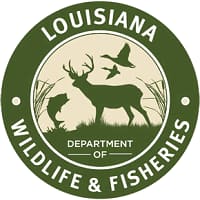Louisiana Hunter Education Requirement Clarified

The Louisiana Department of Wildlife and Fisheries is advising hunters that a change in state law allows persons born on or after September 1, 1969 to purchase a hunting license without hunter education certification. However, persons without hunter education will receive a restricted license that requires them to be directly supervised by a licensed hunter born prior to Sept. 1, 1969 or a person 18 years of age or older who has received hunter education certification.
Hunters with a restricted hunting license may hunt unsupervised if they have received hunter education certification and carry proof of such certification on their person while hunting. Direct supervision means the hunter without hunter education certification is within hearing distance of a normal voice and in direct line of sight of the supervising adult. Act 335 of the 2010 Regular Session of the Louisiana Legislature provided for this option that became effective with the 2010-11 hunting season.
Persons born after Sept. 1, 1969 and who are 12 years of age or older may hunt unsupervised if they have successfully completed an approved Hunter Education class prior to hunting. Hunters 10 and 11 years old are required to be directly supervised even if they are hunter education certified. There is no minimum age for attending a Hunter Education course; however, persons under 10 years old cannot receive Hunter Education certification and must be directly supervised while hunting.
Two options are available for obtaining Hunter Education certification. Students may attend a traditional classroom course that consists of 10 hours of instruction, usually taught over 2-3 days. Alternatively, students may take the home study version available on-line or by CD-Rom. Hunters who choose the home study version must also attend a mandatory six-hour field day event. The Louisiana Hunter Education certification is recognized and accepted in all 50 states.
There is no charge for the classroom course or CD-ROM version of the home study course. There is a $15 charge to take the on-line version of the home course. Home study CD-ROMs are available from LDWF Education Program offices. The home study version is generally not recommended for students younger than 14 years old.
To register for a class or to learn more about Hunter Education in Louisiana, visit www.wlf.la.gov/hunting/hunter-education . There are multiple websites offering Hunter Education information and class schedules, however, hunters are advised to refer only to the department’s website or links accessed from the department website for current and reliable Hunter Education information.
For more information, contact Fred Kimmel at 225-765-2355 or fkimmel@wlf.la.gov .

